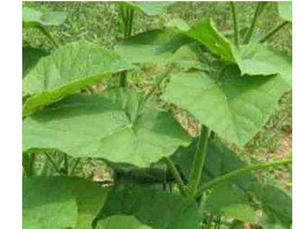Introduction to Paulownia Seed
Paulownia seed is a highly sought-after planting material, known for its impressive growth rates and ecological benefits. The seeds come from the Paulownia tree, often referred to as the “empress tree” or "princess tree" due to its majestic stature and attractive blooms. This remarkable tree species is not only valued for its wood but also for its role in reforestation and soil improvement. Paulownia seeds are the key to establishing trees that can thrive in various conditions, making them a popular choice among horticulturists and land developers.
Types of Paulownia Seed
- Paulownia Tomentosa: Commonly known as the empress tree, this type is cherished for its rapid growth and large leaves.
- Paulownia Elongata: Recognized for its timber quality and adaptability, it is often cultivated for commercial purposes.
- Paulownia Fortunei: This variety is prized for its decorative blossoms and is suitable for ornamental planting.
- Hybrid Varieties: These seeds result from crossing different Paulownia species to enhance specific traits like growth speed, wood quality, and disease resistance.
Applications of Paulownia Seed
- Afforestation and Reforestation: Paulownia trees are planted to restore degraded lands and combat climate change, absorbing significant amounts of CO2.
- Agricultural Benefits: Their extensive root systems improve soil structure and fertility, making them ideal for intercropping.
- Timber Production: The rapid growth of Paulownia makes it economically viable for wood production, creating sustainable resources.
- Ornamental Landscaping: With their stunning flowers and broad leaves, Paulownia trees are often used in landscape design to create beautiful natural spaces.
Features and Advantages of Paulownia Seed
- Fast Germination: Paulownia seeds typically germinate within 10 days, allowing for quick establishment of new trees.
- High Growth Rate: The Paulownia tree can grow up to 15 feet in the first year under optimal conditions, significantly reducing waiting times for timber.
- Resistance to Pests and Diseases: Many varieties exhibit natural resistance, minimizing the need for chemical applications during growth.
- Ecological Benefits: Besides carbon sequestration, these trees contribute to biodiversity by providing habitats for various wildlife.
- Versatile Use: Paulownia is used in furniture production, paper manufacturing, and even as biofuel, showcasing its multifunctional properties.
How to Choose Paulownia Seed
- Understand Your Climate: Select species and varieties based on your local climate and soil conditions to ensure successful growth.
- Identify Your Purpose: Consider whether you need the trees for timber production, landscaping, or ecological restoration.
- Seed Quality: Ensure that the seeds you choose are certified, viable, and free from pests to maximize growth potential.
- Research Growth Rates: Different Paulownia varieties may have varying growth rates; select one that aligns with your project timelines.
- Consult Experts: Engage with horticulture professionals or local agricultural extensions for tailored advice on seed selection and planting strategies.

































